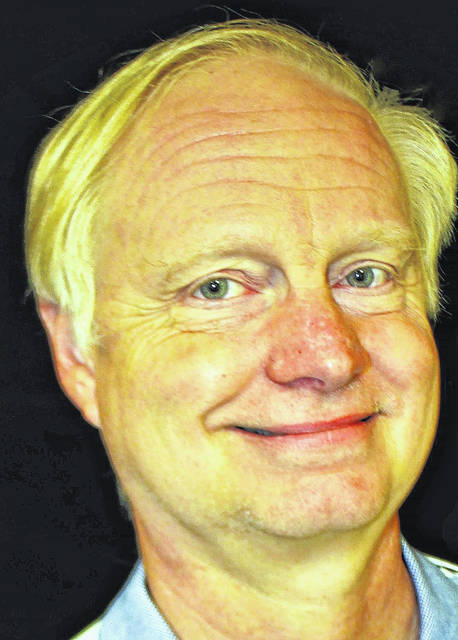
Energize Clinton County co-founder Mark Rembert’s name is found several times in the endnotes of the new book “This is Ohio: The Overdose Crisis and the Front Lines of a New America”. That’s because Rembert is a co-author of the 2017 report titled Taking Measure of Ohio’s Opioid Crisis, released by researchers with the C. William Swank Program in Rural-Urban Policy at The Ohio State University.
“This is Ohio”, written by Denison University’s Narrative Journalism Chair Jack Shuler, cites findings in the Rembert report. In one instance Shuler writes: “Research confirms that the overdose crisis has indeed hit low-income communities harder than well-off ones. For example, a 2017 report from researchers at The Ohio State University’s Swank Institute found that ‘an Ohio county’s unemployment rate in 2010 is positively correlated with overdose deaths in 2015 … Counties with a higher poverty rate have a higher overdose rate.’ ”
I can heartily recommend Shuler’s book. It focuses on Licking County, Ohio where Denison University is located. Licking County and Clinton County have things in common, such as their largely rural characters, they both have Amazon facilities and four-year colleges, and residents at both places have experienced economic struggles prior to the COVID economy.
The Longaberger basket-making company once employed over 8,200 people, many from Licking County. It closed in 2016.
The book contains profiles of men and women centered on saving lives. Shuler writes about Newark Assistant Fire Chief David Decker. According to Shuler, Decker struggles to understand why people judge people who use drugs. Decker is quoted: “I’m guessing all these people didn’t have a longing to become addicted to anything.”
In his book, the Denison professor writes a lot about Billy McCall, who struggles with substance use disorder. Shuler quotes McCall: “It’s vital that every time someone changes their life and puts down the drugs … that they share their story.”
Shuler employs the narrative storytelling technique and in the process of reporting and researching, he spends a lot of time with people who have the lived experience of substance use disorder. He interlaces his account with his own thoughts and responses.
“We should be open, too, to the idea that recovery happens in all sorts of ways for all kinds of folks, and we should therefore work even for those solutions that might make us uncomfortable,” writes Shuler.
Because substance use disorder and homelessness often overlap, the book also deals with homelessness in Licking County.
Shuler writes about Tresa Jewell, who he describes as “the Army veteran turned rogue social worker, who drives around Licking, Perry, and Fairfield Counties delivering food and supplies to people who live in tents and camps.”
Having served as a nurse in a mobile army surgical hospital (MASH) in Vietnam, Jewell at first focused on veterans, writes Shuler, but now she looks for anyone. She’s been at it around central Ohio for 10 years.
“I always knew there was homeless, but it’s like it didn’t register with me,” Jewell said.
Shuler writes, “She [Jewell] gets help from the service organization American Veterans (AMVETS) in nearby Thornville — they give her money for groceries, tents, phone cards, boots and socks, propane, and whatever else people might need.”
There’s a passage in the book about a young man named Daniel Crawford who spoke at a Newark City Council meeting. Newark is the county seat of Licking County.
“When he [Crawford] was younger, his family went to a campground; he thought they were on a trip, but they stayed for a long time. Then, he says, his family lived in the Budget Inn,” the book relates.
Shuler reports that Crawford told the city council, “It should not be illegal to exist without a home.”
The book includes coverage of when over a dozen members of the Newark Think Tank on Poverty show up at city council, where they “speak openly about their own experiences of being unsheltered, demanding an encampment, a city-sanctioned tent city immediately.”
And the book also gives an example of an apparently successful effort “after a long summer of discussion” to establish a warming shelter for the winter of 2019-20.
Reach Gary Huffenberger at 937-556-5768.


